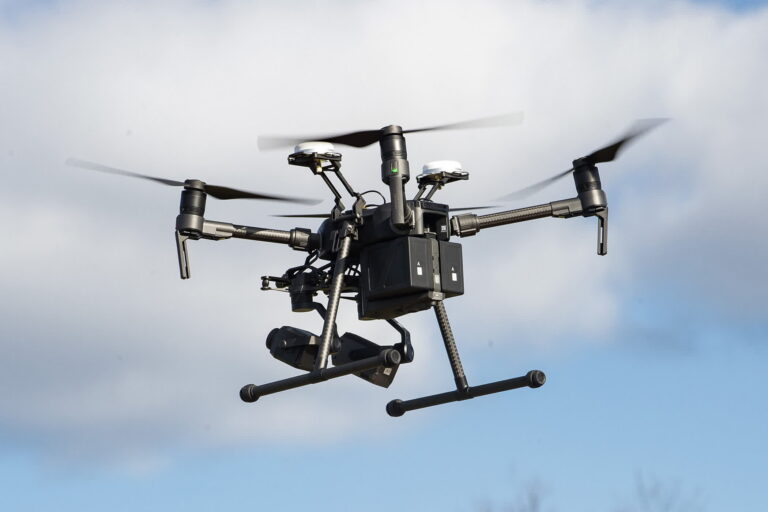
[ad_1]
What just happened? The NYPD is increasing its reliance on cutting-edge technology to enhance the safety of residents during emergency scenarios. The department recently conducted tests of a novel drone-based broadcast system, but experts and overnight organizations are already debating its usefulness.
After weeks of persistent rainfall and extreme weather conditions in New York City, local police finally had the opportunity to put their new emergency broadcasting system to the test. The department announced the trial on Twitter, revealing the deployment of undisclosed “remote-piloted public messaging capabilities” in Queens.
The NYPD’s new “audio drones” broadcast messages in areas where dangerous weather events are expected, alerting New Yorkers about the possibility of flooding and urging them to remain indoors or seek shelter.
Weather-related emergencies and other natural disasters have the potential to disrupt critical infrastructure, the NYPD said. Notably, the drones will only be deployed when there is a power or telecom failure.
A NYPD spokesperson did not share the results of the drone test, even though the city is still experiencing a “remarkable” amount of rainfalls and potential flooding events.
The @NYPDnews will be conducting a test of remote-piloted public messaging capabilities today, 7/16. The test will be conducted on Brookville Boulevard between 149th Avenue and Rockaway Turnpike in Queens.
– NYCEM – Notify NYC (@NotifyNYC) July 16, 2023
The NYPD initially avoided the use of the word “drone,” as operating “talkative” UAVs could be in violation of the Public Oversight of Surveillance Technology (POST) Act. The POST Act requires the NYPD to publish impact and use policies for surveillance technologies, seek public comment, and wait 90 days before deployment.
The NYPD could potentially bypass the stringent requirements of the POST Act by categorizing the new technology as an “enhancement” to devices already operating under existing policies, such as “Situational Awareness Cameras” and “Unmanned Aircraft Systems.” The police department already possesses a small fleet of remotely-controlled drones (and dystopian robo-dogs), but their ability to communicate verbally has not been activated.
Policy concerns aside, the plan to utilize drones for broadcasting emergency messages is being met with skepticism. Albert Fox Cahn, the executive director of the Surveillance Technology Oversight Project, expressed doubts, noting that the NYPD would require “thousands” of airborne drones to effectively cover the entire city. The department already has numerous alternative methods to issue warnings, including emergency push notifications for cellphones. According to Cahn, the drones are an ineffective means of alerting New Yorkers and primarily serve to create discomfort and unease.
[ad_2]